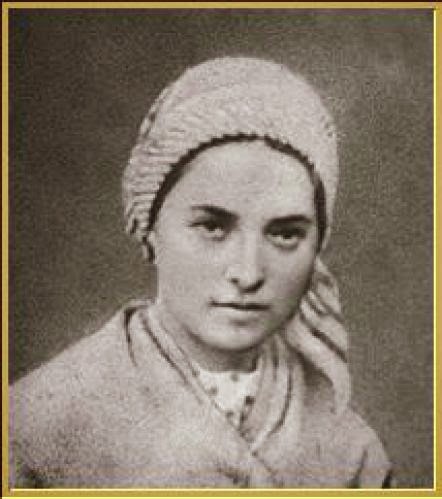
The movie won four Academy Awards, including Best Actress for Jennifer Jones, who played Bernadette, the sweet-natured peasant girl who claimed 18 visions of the Blessed Virgin. (Linda Darnel, of all people, made brief appearances as the Virgin). I know this because I have just watched the movie on VHS. On the evidence of the film, not much changed in the Church between 1858, when Bernadette had her visions, and 1958, when I graduated from college on the "eve" of the Second Vatican Council. I grew up in pretty much the same religious milieu as the maid of Lourdes.
Academy Award notwithstanding, Jennifer Jones drifts through her role like an angelic zombie, her one expression a sweet beatitude. While issues of supernaturalism vs. naturalism are explored, the naturalists are generally depicted as stiff-necked villains, and the supernaturalists carry the day. It's a feel-good movie for those who have their heart set on Heaven -- a Wizard of Oz for the rosary brigade. As one of characters says: "For those who believe, no explanation is necessary; for those who don't believe, no explanation will suffice."
None of this is to say that the Lourdes phenomenon is without interest or merit. The story of the shrine is primarily about pain and hope, as non-Catholic Oxford historian Ruth Harris points out in her skeptical but respectful book Lourdes: Body and Spirit in the Secular Age. Pain is always with us, and hope helps us endure. The body and the mind are connected in mysterious ways, as the effectiveness of placebos confirms. If the waters of Lourdes give comfort to believers, who will deny them that relief?
The story of Bernadette, as told by Werfel and Hollywood, is a story of the triumph of innocence over power and greed. In the film, as word of Bernadette's visions spread, the town's skeptical mayor worries that modernity will pass Lourdes by. "Who is going to run a railroad through a hole where spooks perform their medieval antics in dirty caverns," he groans. Today, a century-and-a-half later, five million pilgrims a year flock to the shrine from all over the world. The mayor greatly underestimated the attraction of hope.
Reference: practicing-wicca.blogspot.com







